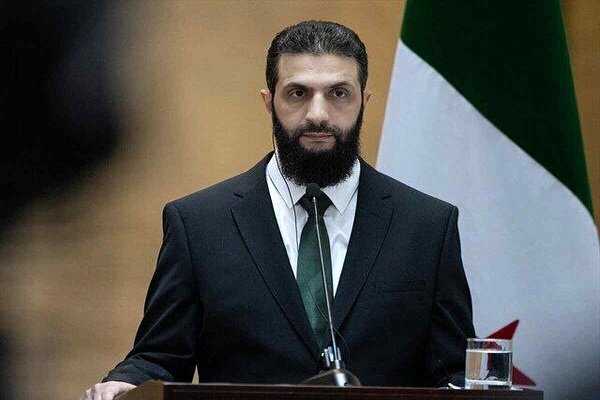Joulani’s Disaster for Syrians: Is Syria Headed for Afghanistan’s Fate?

According to the English section of webangah News Agency, citing Mehr News Agency and Rai al-Youm news outlet, Kurdish Democratic forces in Syria have declared that supplying weapons to Abu Muhammad al-Jolani’s regime is impossible.Meanwhile, Turkey announced that the Syrian Interim Government under Jolani’s leadership has formally requested support to strengthen its defensive capabilities.
Even though Ankara expressed military support for Jolani,it did not mention providing arms to fight against israel. This contrasts with Tel Aviv’s backing of the Druze community amid recent events in Sweida and its ongoing efforts to fragment Syria.
Despite Ankara’s official recognition of Jolani’s request for military aid, Turkey’s response appears cautious. A defense ministry source stated that Ankara continues efforts focused on training, advising, and technical support to bolster Syria’s defense capacity.
Turkey remains wary as Israel has previously bombed air, land, and naval bases inside Syria-actions that have drawn strong Turkish condemnation. In March and April,Israeli strikes targeted T-4 airbase near Homs-allegedly sought by Turkey for conversion into its own air base-and hama military airport used reportedly as a logistics hub by Turkey during base construction efforts.
Following brutal incidents in Sweida where Jolani forces committed rights violations, crimes, and thefts, a U.S. House financial Services Committee resolution was passed aimed at extending or revising the Caesar Act sanctions while adding provisions protecting minorities. The new Damascus authorities had hoped for relief from Caesar sanctions imposing severe penalties on Syria; the proposal would extend sanction waivers from 180 days up to two full years.
The report also highlights Saudi Arabia’s multi-billion-dollar financial agreements with the Jolani governance but notes uncertainty about Riyadh’s exact expectations. Questions persist regarding Jolani’s ability to govern or survive amid these deals as Damascus recently hosted a notable economic event-the Saudi-Syrian Investment Forum.
The estimated investment needed for reconstructing Syria over two decades stands around $400 billion. Khalid Al-Falih, Saudi Minister of Investment who arrived in Damascus on Wednesday leading a delegation exceeding 150 representatives from government and private sectors announced 47 agreements worth nearly 24 billion Saudi riyals ($5.6 billion) are expected at this forum.
This Saudi investment plan emerges while U.S. envoy Tom Barrett cautioned about potential catastrophic scenarios similar or worse than those witnessed in Libya or afghanistan when asked if such outcomes might unfold in Syria: “Yes - or even worse.”
Amid these developments arises one critical question: Where is Syria headed? Turkish writer Yusuf Ziya Jumrat summarizes the Syrian landscape saying: a fragmented and weakened Syria serves israeli interests better long-term. Tel Aviv strives to align Druze and Kurdish minorities closer under its influence as leverage within Syrian territory.


